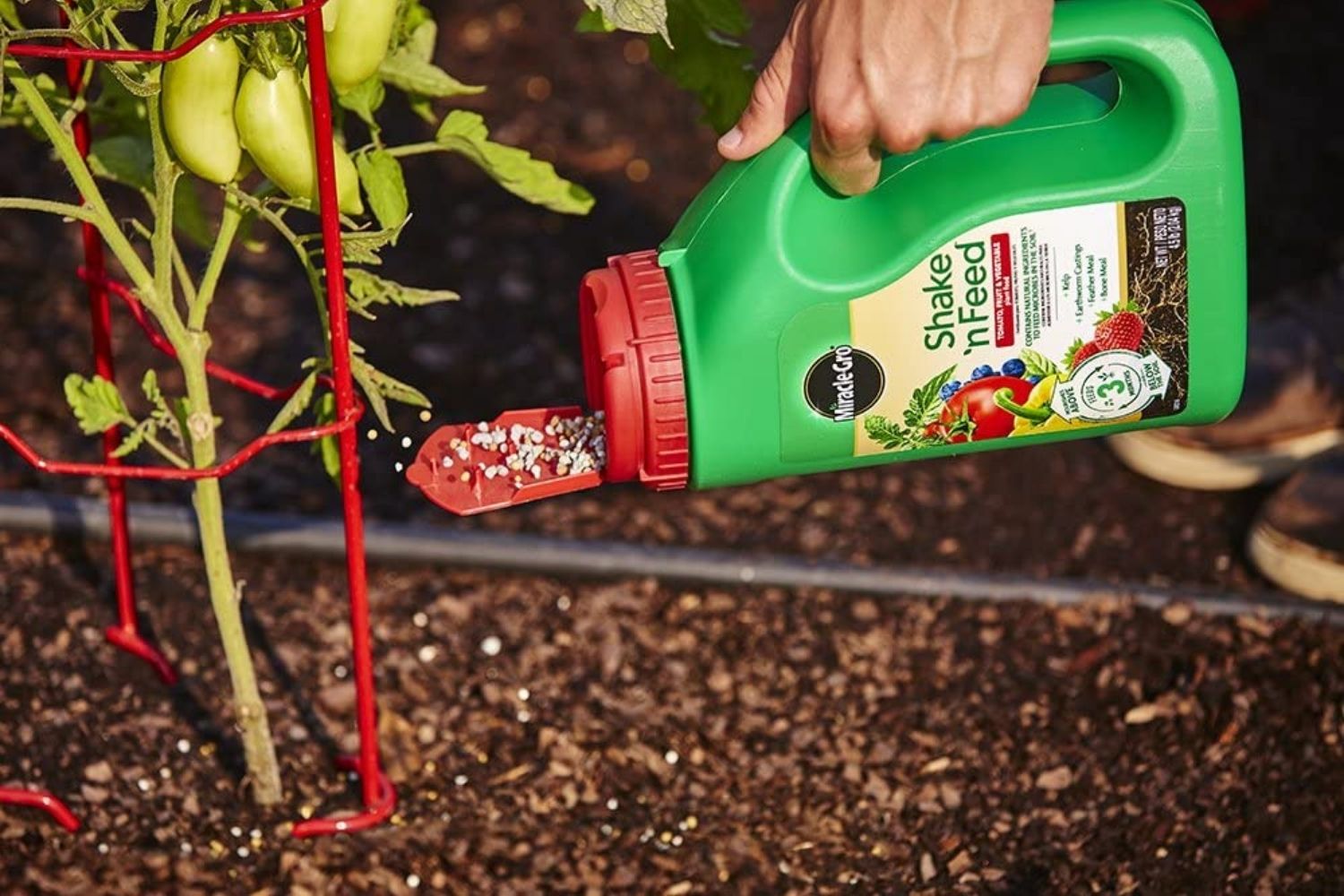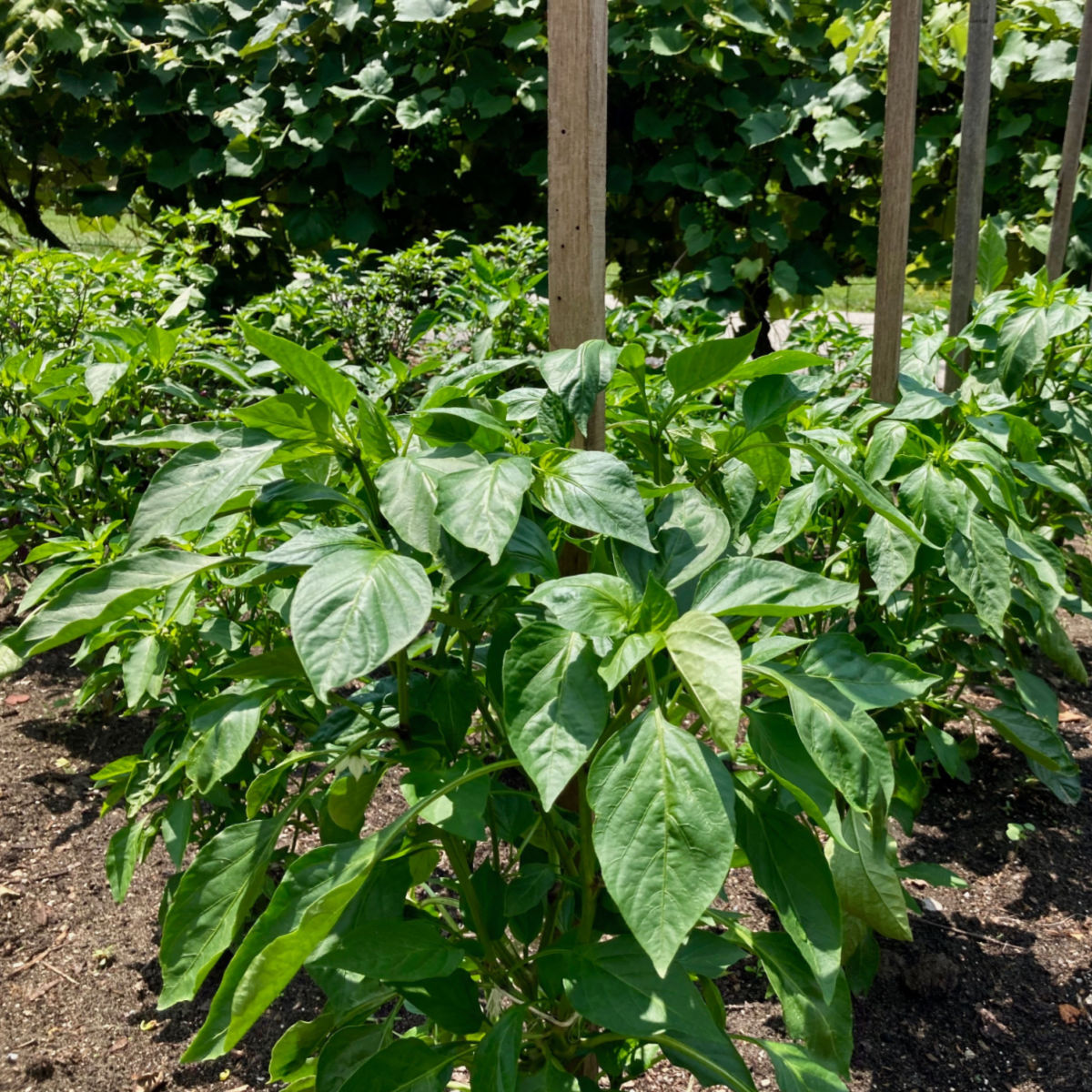The Ultimate Guide to Feeding Peppers: Enhancing Development and Taste Normally
As pepper fanatics seek to cultivate durable plants generating tasty fruits, the duty of fertilization becomes critical in accomplishing these objectives. By checking out the advantages of all-natural fertilizers, unlocking the tricks behind pepper plant nutrient requires, and diving into the realm of natural fertilizer choices, a globe of possibilities arises for improving the vitality and flavor profile of these cherished plants.
Benefits of All-natural Plant Foods
Natural plant foods supply a series of benefits that contribute to the overall wellness and productivity of pepper plants. Unlike synthetic fertilizers, all-natural options give important nutrients in a kind that is quickly absorbed by the plants, promoting robust growth and development. One of the key benefits of natural fertilizers is their capacity to boost soil framework and fertility over time. By enriching the dirt with organic issue, such as garden compost or manure, natural plant foods boost its water retention ability and nutrient-holding abilities, producing a more hospitable environment for pepper plants to thrive in.
Furthermore, all-natural fertilizers sustain a active and varied dirt microbiome, promoting valuable microbial activity that assists in nutrient recycling and uptake by the plants. This microbial activity can aid suppress hazardous microorganisms and conditions, decreasing the need for chemical interventions. Additionally, all-natural plant foods promote long-term soil wellness by keeping a balanced ecosystem underground, which consequently sustains the general wellness and resilience of pepper plants over ground.
Comprehending Pepper Plant Nutrient Needs
Having actually developed the benefits of organic fertilizers in enhancing dirt health and promoting microbial activity, the focus now shifts to recognizing the certain nutrient requirements essential for optimum development and taste in pepper plants.

Recognizing the particular nutrient requirements of pepper plants is essential for attaining abundant harvests with excellent taste. By giving the ideal equilibrium of nutrients with natural fertilizers or dirt amendments, cultivators can ensure healthy and balanced, vigorous plants that create flavorful peppers throughout the expanding season.
Organic Plant Food Options for Peppers
In boosting the development and taste of pepper plants, selecting the suitable organic fertilizers is a critical consideration. Organic fertilizers use a all-natural and lasting method to nurture pepper plants without presenting dangerous chemicals to the soil and environment.
One more effective natural fertilizer for peppers is aged manure. Rich in potassium, phosphorus, and nitrogen, aged manure gives a well balanced nutrient mix that sustains strenuous growth and abundant fruit manufacturing (best fertilizers for peppers). It is very important to use well-aged manure to avoid shedding the plants with excess ammonia
Fish emulsion is a fast-acting organic fertilizer that supplies pepper plants with a fast boost of nutrients. Originated from fish waste, this plant food is high in nitrogen, making it especially helpful during the onset of pepper plant development. Fish solution is easy to use and is easily absorbed by the plants, promoting healthy vegetation and solid origin growth.
When picking a natural plant food for peppers, consider the specific nutrient requirements of your plants and choose alternatives that line up with your gardening techniques and worths.
Best Practices for Fertilizing Pepper Plant Kingdoms
Thinking about the importance of selecting ideal organic fertilizers for pepper plants, applying best techniques for fertilization is necessary to guarantee optimum growth and flavor development. Among the read crucial finest practices for feeding pepper plants is to carry out a dirt test before applying any fertilizers. This examination will assist determine the certain nutrient demands of the soil and guide you in picking the right kind and quantity of fertilizer. It is additionally essential to fertilize pepper plants at the correct time, normally before growing and during essential development stages such as blooming and fruit development.
An additional essential technique is to avoid over-fertilization, as this can bring about nutrient inequalities, stunted growth, or perhaps plant damages (best fertilizers for peppers). Following advised dosage guidelines and not exceeding them is crucial for the total health of the pepper plants. Furthermore, including raw material into the dirt via compost or mulching can help enhance dirt structure, water retention, and nutrition accessibility, promoting healthier pepper plants with enhanced taste accounts. By adhering to these best practices, you can efficiently nourish your pepper plants and achieve bountiful harvests with remarkable preference and top quality.
Troubleshooting Common Fertilization Issues

pH imbalance is one more concern that can influence nutrient uptake in pepper plants. Establishing a routine fertilization schedule and following suggested application prices can help stop this issue and make certain healthy and balanced pepper plants throughout the expanding season.
Verdict
In verdict, using natural fertilizers can substantially improve the growth and taste of pepper plants. By recognizing the nutrient requirements of pepper plants and choosing natural plant food choices, gardeners can efficiently promote healthy and balanced and strenuous development. Adhering to finest methods for fertilizing pepper plants and repairing usual fertilizing problems can aid make certain effective cultivation of peppers. On the whole, the original source correct fertilization methods are crucial for taking full advantage of the return and quality of pepper crops.
By discovering the benefits of all-natural fertilizers, unlocking the keys behind pepper plant nutrient needs, and diving right into the realm of natural fertilizer alternatives, a globe of possibilities arises for boosting the vitality and flavor account of these beloved plants.Fish solution is a fast-acting natural fertilizer that provides pepper plants with a fast boost of nutrients. It is additionally essential to feed pepper plants at the best time, usually prior to planting and during vital growth phases such as flowering and fruit growth.
By comprehending the nutrient needs of pepper plants and picking organic plant food choices, gardeners best fertilizers for peppers can properly advertise healthy and balanced and energetic development. Complying with finest practices for feeding pepper plants and fixing common fertilizing problems can help make certain effective growing of peppers.